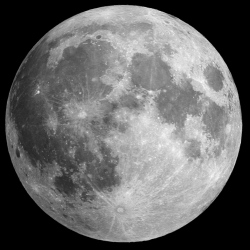
NASA hasn’t sent humans past Earth orbit since the Apollo program in the 70s, and it hasn’t put any humans into space (relying instead on the Russians) since the Space Shuttle program ended in in 2011. Orion is the answer to that stagnation. Bolstered by a powerful rocket still in development called the Space Launch System (SLS), the spacecraft is designed to escape the gravity of Earth and take humans into deep space.
The current plan is to lasso a small asteroid with a robotic ship and put it in orbit around the moon. The SLS and Orion will then take astronauts to visit that asteroid. NASA hopes that the knowledge gained from the Asteroid Redirect Mission will eventually help them put Orion on Mars, if the agency has the money, which it does not in its current budget, because building giant ships that blast mankind into space is expensive as hell.
If this all sounds convoluted and roundabout and, let’s face it, not remotely as exciting as an actual plan to go to Mars, there’s a very good reason: This plan was salvaged from the original goal, a canceled program meant to land humans on the Red Planet. It’s a consolation prize, and it shows.
Here’s what happened: In 2004, before wars in Iraq and Afghanistan totally sapped the U.S. budget, President Bush asked NASA to develop a new plan for human spaceflight. They came up with Constellation, a program that was supposed to put humans back on the moon by 2020 and on Mars in the years after. Orion would be the spacecraft that took us there.
By 2009, however, a blue-ribbon panel concluded that there was no way NASA would have enough money to get to Mars. The cost of building a rocket alone would leave nothing left over to develop the things the rocket would transport. President Obama responded by canceling Constellation, so now we have the "Flexible Path to Mars." That’s why Orion is going to an asteroid first.
On one hand, salvaging the workable pieces of a canceled plan is admirable. On the other hand, there’s a little enthusiasm for the Asteroid Redirect Mission. Even NASA’s own Advisory Council called it a "dead-end element" for a Mars mission. Mark Sykes, president of the Planetary Science Institute, told Scientific American "It’s a waste of money.
It doesn’t advance anything and everything that could benefit from it could be benefited far more by other, cheaper, more efficient means." He told a congressional committee as much, too. Republicans now in charge of the US Congress also have every reason to not fund a plan approved by Obama.
